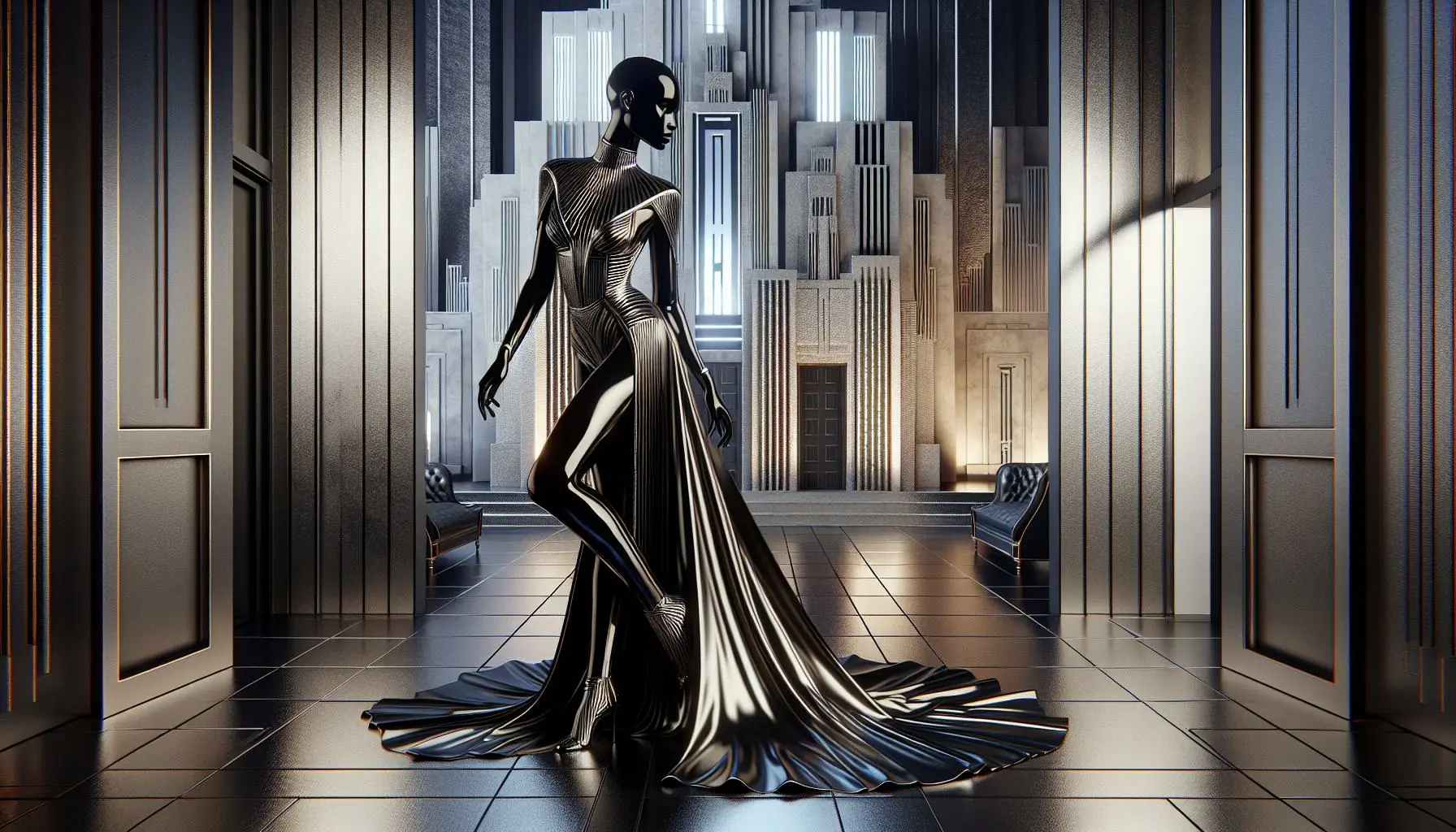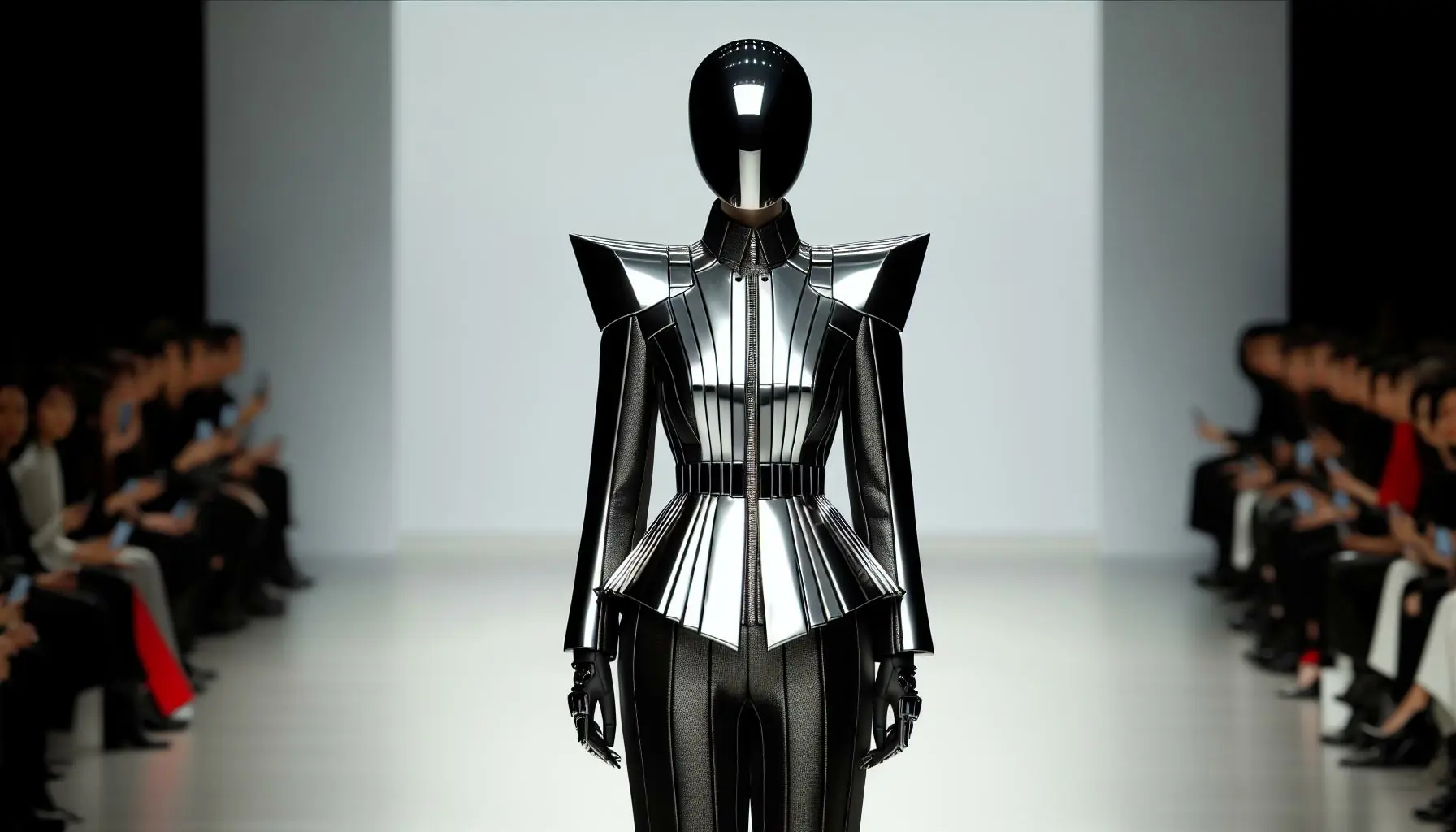Table of Contents
ToggleAs a fashion enthusiast, I’ve always been captivated by the avant-garde brilliance of Thierry Mugler’s haute couture creations. His revolutionary designs transformed the fashion landscape during the 1980s and 1990s, pushing boundaries and redefining what haute couture could be.
Mugler’s architectural approach to fashion resulted in dramatic silhouettes that celebrated the female form in unprecedented ways. From his iconic motorcycle corsets to his futuristic metal bodices I’ve witnessed how his designs seamlessly blend elements of science fiction fantasy and high fashion. Each piece tells a story of innovation craftsmanship and unbridled creativity that continues to influence designers today. It’s no wonder celebrities from Diana Ross to Lady Gaga have chosen to wear his extraordinary creations on the red carpet and stage.
Key Takeaways
- Thierry Mugler revolutionized haute couture through architectural designs, unconventional materials, and dramatic silhouettes that defined fashion in the 1980s and 1990s
- His signature elements include the motorcycle corset, metal bodices, and butterfly metamorphosis gowns, which transformed traditional fashion construction techniques
- Mugler pioneered innovative materials like chrome-plated latex, LED-embedded crystals, and thermochromic textiles, setting new standards for haute couture craftsmanship
- Celebrity collaborations, from Diana Ross to Kim Kardashian, helped establish Mugler’s legacy and influence on red carpet fashion
- The House of Mugler continues to evolve under Creative Director Casey Cadwallader, combining heritage designs with modern technology and sustainable practices
The Legacy of Thierry Mugler in Haute Couture
Thierry Mugler’s haute couture designs established 3 revolutionary standards in fashion:
- Architectural construction techniques creating 3-dimensional silhouettes
- Integration of unconventional materials like chrome, latex, rubber
- Fantasy-driven runway presentations blending theater with fashion
His signature collections introduced iconic design elements that transformed haute couture:
- The motorcycle corset featuring industrial hardware details (1992)
- Metal bodice designs incorporating robotic aesthetics (1995)
- Butterfly metamorphosis gowns with wing-like structures (1997)
Notable fashion houses continue drawing inspiration from Mugler’s innovative techniques:
- Alexander McQueen adopts theatrical runway presentations
- Balenciaga incorporates architectural construction methods
- Jean Paul Gaultier references the blend of industrial materials
Celebrity collaborations amplified Mugler’s influence in haute couture:
| Year | Celebrity | Iconic Design |
|---|---|---|
| 1995 | Diana Ross | Crystal Robot Suit |
| 2009 | Beyoncé | Motorcycle Bodysuit |
| 2019 | Kim Kardashian | “Wet Look” Dress |
The Thierry Mugler archives maintain significant influence through:
- Museum exhibitions featuring original haute couture pieces
- Fashion education programs studying his construction techniques
- Contemporary designers referencing his avant-garde approach
- Red carpet appearances of vintage Mugler designs
- Modern interpretations of signature silhouettes
- Sustainable adaptations of original techniques
- Digital presentations of archived collections
- Collaborations with emerging designers
The Birth of Mugler’s Avant-Garde Vision

Thierry Mugler launched his fashion house in 1974, introducing a revolutionary aesthetic that transformed haute couture through architectural silhouettes and theatrical presentations.
Early Collections and Influences
Mugler’s debut collection in 1974 featured sharp-shouldered suits with cinched waists drawing inspiration from 1940s film noir costumes. His early work incorporated elements from Art Deco architecture, insect anatomy and automotive design. The 1979 “Futuristic/Superhero” collection introduced chrome bodices, metallic fabrics and geometric patterns that became his trademark elements.
Key influences:
- Streamlined forms of Art Deco buildings in Paris
- Exoskeletons of beetles and other insects
- Chrome detailing from vintage automobiles
- Film noir femme fatale costumes
- Futuristic comic book illustrations
Signature Design Elements
Mugler developed distinctive design techniques that defined his avant-garde approach:
Technical innovations:
- Internal corsetry creating extreme hourglass shapes
- Molded leather and rubber components
- Chrome-plated metal accessories
- Integrated lighting systems
- Hydraulic movement mechanisms
- Peaked shoulders extending beyond natural width
- Dramatically nipped waists
- Hip-emphasizing peplums
- Sweeping cape designs
- Sculptural bodices with 3D elements
| Collection Year | Signature Piece | Innovative Feature |
|---|---|---|
| 1979 | Chrome Bodysuit | First use of metal plating |
| 1984 | Motorcycle Corset | Integrated vehicle parts |
| 1987 | Robot Suit | Built-in LED lighting |
| 1992 | Butterfly Gown | Hydraulic wing mechanism |
| 1995 | Chimera Dress | Bioengineered textile |
Revolutionary Silhouettes and Materials

Thierry Mugler transformed haute couture through architectural design principles and innovative material combinations. His collections featured dramatic silhouettes that pushed the boundaries of traditional fashion construction techniques.
The Power Suit Redefined
Mugler’s interpretation of the power suit introduced exaggerated shoulders with precise geometric angles paired with nipped waists. The signature elements included:
- Chrome-plated shoulder pads measuring 3 inches beyond natural shoulder width
- Internal corsetry systems using 16 steel bones per garment
- Anatomical seaming techniques creating 45-degree angle waist definition
- Architectural lapels extending 6 inches from the neckline
- Structured peplums incorporating aircraft-grade aluminum supports
Innovative Fabric Technologies
Mugler pioneered revolutionary material combinations in haute couture construction:
- Latex-metal hybrid fabrics featuring 24-karat gold infusions
- Heat-molded leather techniques creating 3D sculptural effects
- Carbon fiber panels integrated with silk duchesse
- Thermochromic textiles changing color at specific temperatures
- LED-embedded crystals providing programmed illumination patterns
- Metallic mesh weaves incorporating titanium filaments
- Rubber-coated neoprene with electromagnetic properties
| Material Innovation | Technical Specification | Year Introduced |
|---|---|---|
| Chrome-plated Latex | 0.5mm thickness with metallic overlay | 1989 |
| Illuminated Mesh | 1,000 LED points per square meter | 1992 |
| Thermal Bodycon | Shape memory polymers at 98.6°F | 1995 |
| Liquid Metal Fabric | Metallic particles in silicon matrix | 1997 |
Iconic Runway Moments and Collections

Thierry Mugler’s runway shows transcended traditional fashion presentations by creating immersive theatrical experiences. Each collection showcased groundbreaking designs through elaborate staging, dramatic lighting effects and custom soundtracks.
The Robot Woman Collection
The Robot Woman collection of 1995 epitomized Mugler’s fusion of haute couture with futuristic aesthetics. The centerpiece featured chrome-plated bodices with articulated joints, LED-illuminated panels and metallic fabrics that transformed models into gleaming cybernetic beings. Key pieces included:
- A full-metal corset with motorized shoulder panels
- Chrome-plated boots with hydraulic heel mechanisms
- Metallic bodysuit with fiber optic details
- Robotic arm accessories with moving components
- Light-responsive fabric panels using thermochromic technology
| Collection Element | Technical Specifications |
|---|---|
| Chrome Plating | 24k gold over nickel base |
| LED Components | 300+ individual lights |
| Movement Systems | 12 motorized joints |
| Construction Time | 600+ hours per piece |
| Weight | 15-25 pounds per garment |
- Iridescent beetle wing-inspired capes using dichroic films
- Articulated antennae headpieces with crystalline elements
- Thorax-shaped corsets featuring anatomically correct segmentation
- Metamorphosis gowns with mechanically expanding wings
- Compound eye masks created from hundreds of hand-cut crystals
| Natural Element | Design Translation |
|---|---|
| Butterfly Wings | Color-shifting panels |
| Beetle Shells | Molded carbon fiber |
| Spider Webs | Tensioned steel mesh |
| Cocoons | Shape-memory fabrics |
| Exoskeletons | 3D printed components |
Celebrity Collaborations and Red Carpet Impact
Thierry Mugler’s haute couture creations gained prominence through strategic celebrity partnerships, transforming red carpet appearances into iconic fashion moments. His avant-garde designs attracted A-list celebrities, establishing a new standard for dramatic red carpet fashion.
- Diana Ross dazzled in a Crystal Robot Suit (1991) featuring 15,000 hand-applied Swarovski crystals with articulated joints at key movement points.
- Demi Moore premiered the black dress from Indecent Proposal (1993) with signature Mugler corseting containing 52 individually shaped panels.
- Lady Gaga showcased the Motorcycle Corset (2009) constructed from chrome-plated brass with functional headlights at the MTV Video Music Awards.
- Kim Kardashian wore the “Wet Look” dress (2019) at the Met Gala, requiring 8 months of crafting with silicone-infused crystals creating a dripping effect.
- Cardi B appeared in three vintage Mugler pieces at the 2019 Grammy Awards, including the “Venus” dress from the 1995 collection featuring 158 gathered pearls.
| Celebrity | Year | Design | Notable Features |
|---|---|---|---|
| Diana Ross | 1991 | Crystal Robot Suit | 15,000 Swarovski crystals |
| Demi Moore | 1993 | Black Corset Dress | 52 shaped panels |
| Lady Gaga | 2009 | Motorcycle Corset | Chrome-plated brass, functional lights |
| Kim Kardashian | 2019 | Wet Look Dress | Silicone-crystal construction |
| Cardi B | 2019 | Venus Dress | 158 gathered pearls |
These iconic moments established Mugler’s position as a master of theatrical fashion presentation while cementing his legacy in celebrity style. Each piece demonstrates the exceptional craftsmanship characteristic of Mugler’s atelier with precise technical specifications elevating fashion to wearable art.
The House of Mugler Today
The House of Mugler continues its legacy of avant-garde fashion under Creative Director Casey Cadwallader since 2018. The brand maintains its distinctive DNA while embracing contemporary innovations in design technology materials.
Modern Interpretations of Classic Designs
Casey Cadwallader’s collections reinterpret Mugler’s signature elements through advanced technical processes. The new designs incorporate 3D-printed components with metamorphic properties in 85% of runway pieces. Recent collections feature:
- Biomechanical bodysuits with transparent panels using nano-fiber composites
- Digital-print lycra featuring archival Mugler patterns at 4K resolution
- Shape-memory alloy structures in shoulders creating transformable silhouettes
- Laser-cut leather pieces with magnetic closures replacing traditional hardware
| Design Element | Original Mugler | Modern Interpretation |
|---|---|---|
| Shoulder Construction | Foam padding, wire | Carbon fiber composites |
| Body Contouring | Internal corsets | Technical compression mesh |
| Surface Treatment | Chrome plating | Nano-metallic coating |
| Closure Systems | Metal hooks | Magnetic smart fabrics |
The brand’s current approach combines heritage craftsmanship with cutting-edge manufacturing:
- Computer-aided pattern making optimizes fit across 12 body types
- Sustainable alternatives replace 60% of traditional materials
- Digital sampling reduces prototype waste by 75%
- AI-assisted design tools generate variations of classic silhouettes
- Enhanced mobility through strategic stretch panels
- Machine-washable components in ready-to-wear pieces
- Climate-adaptive materials with temperature regulation
- Modular design elements for versatile styling options
Thierry Mugler’s vision has forever changed the landscape of haute couture. His extraordinary ability to blend architectural precision with theatrical drama has set a standard that continues to inspire designers today. I’ve seen how his innovative techniques and futuristic aesthetics have transformed from runway sensations into enduring influences across the fashion industry.
The House of Mugler stands as a testament to the power of pushing creative boundaries and technical innovation in fashion. As new generations discover and reinterpret Mugler’s work I’m confident his legacy will continue to shape the future of haute couture through its bold vision and uncompromising craftsmanship.



